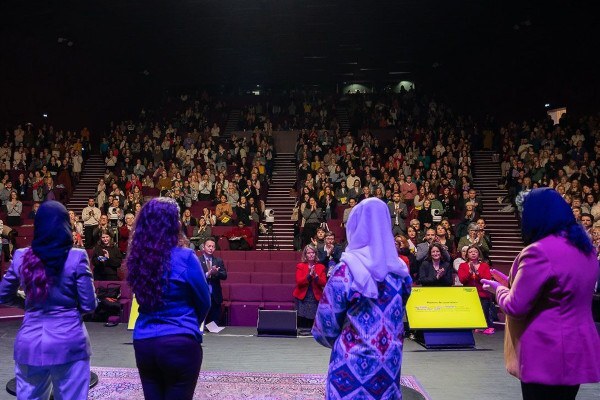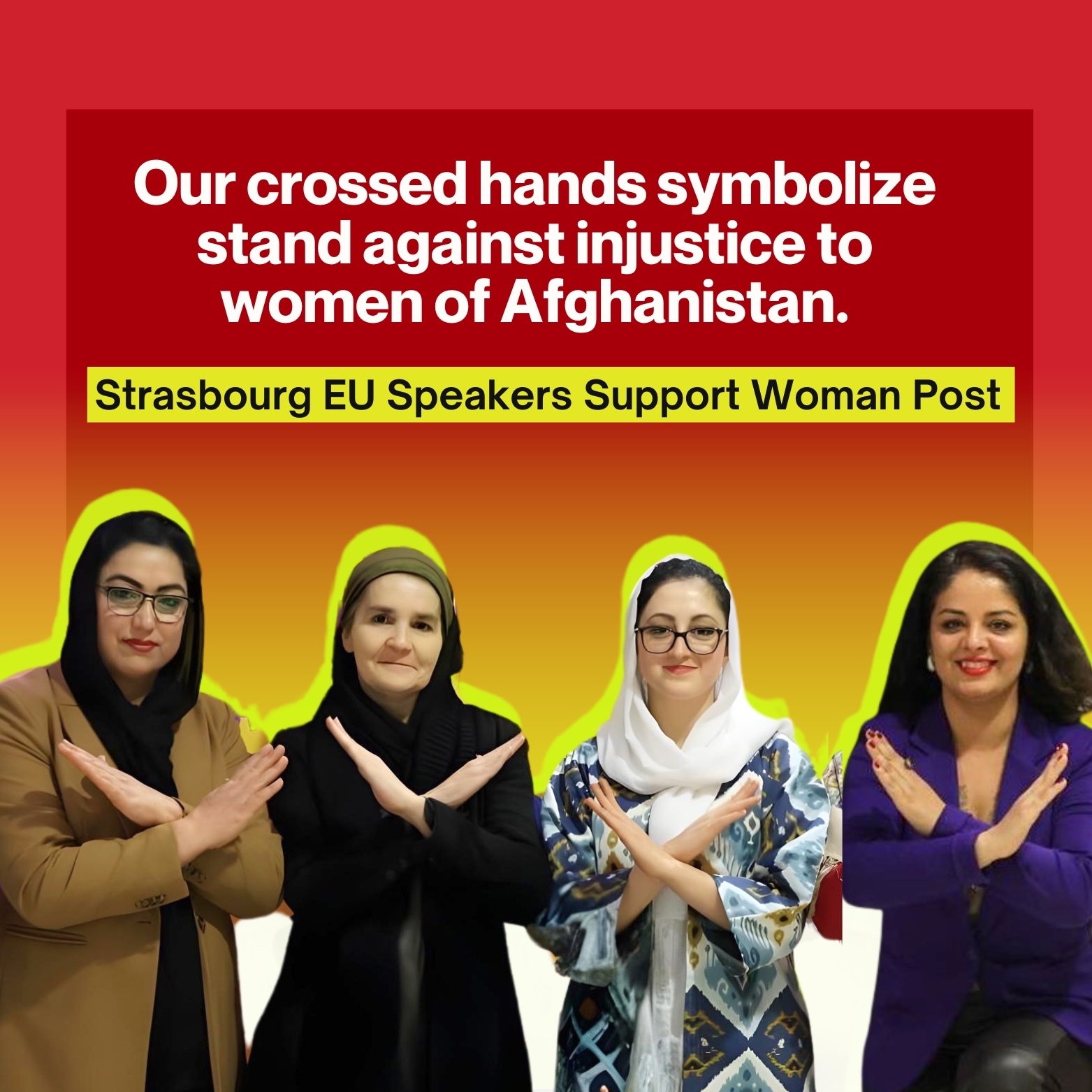Strasbourg European Conference on Combating Violence against Women
The City and its partners are organizing the European Conference on Combating Violence against Women on November 29 and 30. During conferences, workshops, and shows, 50 speakers, researchers, artists, and activists will share their thoughts, experiences, and best practices.
Bold women’s rights figures, including Tahmina Salik, Parwana Ibrahimkhai, Farukh Leqa Unchizad, and Maryam Saghari, participated in panels to discuss combating violence against women in Afghanistan. Together, they crossed their hands to symbolize support for the Women’s Post Movement and spread awareness about Afghanistan women in a unique approach.
Bold women’s rights figures, including Tahmina Salik, Parwana Ibrahimkhai, Farukh Leqa Unchizad, and Maryam Saghari, participated in panels to discuss combating violence against women in Afghanistan. Together, they crossed their hands to symbolize support for the Women’s Post Movement and spread awareness about Afghanistan women in a unique approach.

Tahmina SALIK
Parwana IBRAHIMKHAIL
Farukh LEQA UNCHIZAD
Maryam SAGHARI
Photos Laetitia Piccaretta
"The Pélicot trial is said to be out of the ordinary, but in reality it reveals the norm: the unbearable norm of male impunity." At the opening of the European Conference on Combating Violence against Women , Jeanne Barseghian recalled that feminism is above all a matter of "means and work", praising the action of the feminist associations co-organizing this meeting which takes place a few days after November 25, the international day for the elimination of violence against women and gender minorities.
On November 29 and 30, at the Palais de la musique et des congrès, 50 researchers, activists, elected officials, lawyers, health professionals and artists will present their work, talk about their experiences and offer concrete tools to combat this violence. Four Afghan women took to the podium to express the horror of the Taliban regime. "I would like this to create a real movement of anger because the silence of the world is incredible," hoped activist Tahmina Salik, before singing a song in tribute to Afghan women who are now banned from singing and speaking in public.
Testimony from Afghanistan: Making the voices of women and girls heard with Tahmina SALIK, Farukh LEQA UNCHIZADA, Parwana IBRAHIMKHAIL and Maryam SAGHARI, women's rights defenders.
European action
The first morning of these meetings was also dedicated to what Europe can do in the face of sexist violence. From the Istanbul Convention on preventing and combating violence against women and domestic violence, signed ten years ago by the Council of Europe, to the directive on violence against women adopted by the European Parliament last spring, two round tables provided an opportunity to understand the tools available to European states to combat violence against women and the actual use they make of them, or not.
Concerned about the fragility of the defense of women's rights in a European Parliament where the extreme right is "very powerful", Violaine Lucas, spokesperson for the association Choisir la cause des femmes, defended the clause of the most favored European woman, originally imagined by Gisèle Halimi. "We are proposing a legislative package that includes all the legal provisions that are most favorable to women," she argued, recalling that some countries still have no laws promoting equality and that 14 states still authorize the sterilization of women with disabilities.
Wage inequality, prevention of violence against young people, cyberviolence, testimonies from women with disabilities: around twenty workshops are scheduled for this Friday afternoon. Also with an eye on the other side of our borders: activists from neighboring countries will come to present the fight of Spanish women against sexist violence, the Welcome Center for migrant women set up in Stuttgart and the Crinali cooperative in Milan committed to the health of exiles.
In all, more than 1,400 people responded to this first day of the Assises and nearly 1,000 are expected on Saturday for a day open to the public. On the agenda for the second day: discussions and reflections on feminism in the face of the extreme right, abortion, the culture of consent and the feminist struggle in rural areas through workshops, round tables and shows for young audiences. Childcare is provided so that parents can fully enjoy the day, and the Assises will end with a giant karaoke offered by Arte, the event's partner.


